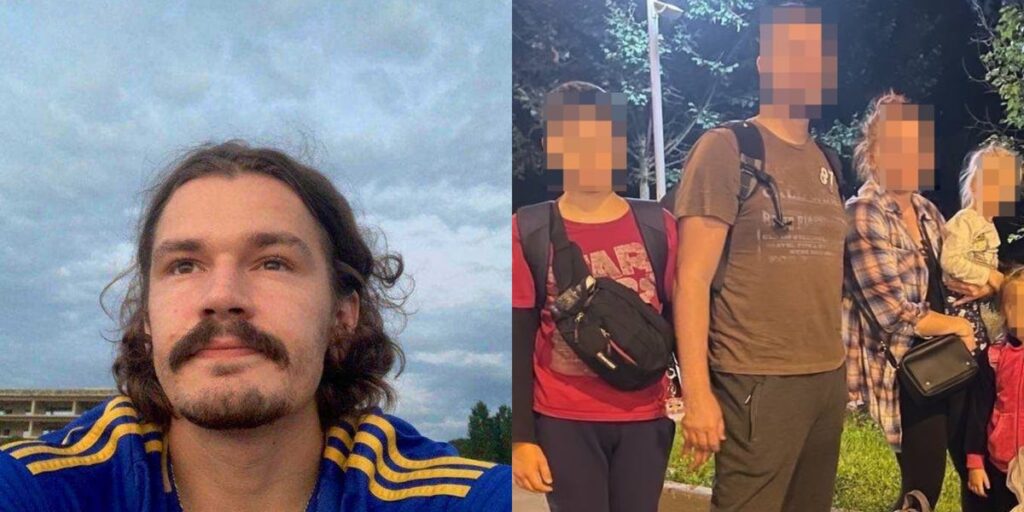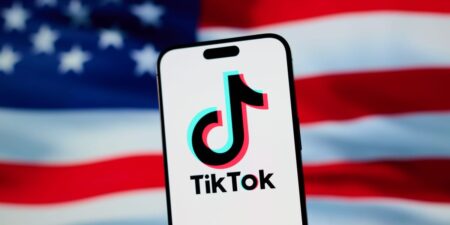- Stefan Vorontsov is a Ukrainian volunteer who secretly coaches those who want to leave occupied Ukraine.
- He told BI what it’s like to evacuate and prepare for scrutiny from border authorities.
- He said the journey’s most difficult leg is the border checkpoint, where Ukrainians can get interrogated for six hours.
This as-told-to essay is based on a conversation with Stefan Vorontsov, a Ukrainian who fled Russian-occupied Nova Kakhovka in early 2022. His organization, Humanity, has helped over 6,000 Ukrainians leave southern and eastern Ukraine.
Vorontsov is trying to raise awareness of the situation at the border, and limited his interview to information that he says would not compromise evacuees’ safety. The following has been edited for length and clarity.
Ukrainians who want to leave Russian occupation have only one path: Russia itself.
It’s too dangerous to cross the front line, so we must go through either Crimea or Rostov-on-Don. Each one has a border checkpoint that gives Ukrainians access to Russia, but they are incredibly difficult to pass through.
The Russian border authorities are constantly screening people to catch pro-Ukraine partisans or punish those with family in the Ukrainian forces. One slip-up may mean you go to prison or never leave.
When a Ukrainian evacuee makes contact with us, we give them a “legend.” It’s the fake story we must create about why they want to enter Russia, about their families and national identity, and about their past.
For example, sick people can say they want to visit a Russian hospital, and families can say they want to go to the Black Sea and chill at the beach.
It’s a lot harder for young Ukrainian men, especially those who are flagged by Russia for making pro-Ukraine posts online. For these people, we have to make sure their legend is strong.
In most cases, I use Telegram’s “secret chat” function to message an evacuee carefully. I have to be delicate with what I tell them because I know that Russia may be able to read every word I write.
The Russians search everything about you
There are many reasons Ukrainians did not flee before the Russian army arrived. Many are sick. Many have children. Even though the war is on your doorstep, on your streets, it’s so difficult to make the decision to permanently leave your home.
Over the years, I’ve learned that 95% of an evacuation’s success depends on preparation before the person steps out the door.
The most important thing Ukrainians must do is clean up their phones.
The Russians check everything at the border checkpoint, and they’re always looking for people with pro-Ukrainian views.
Evacuees must prepare that they could be interviewed for six hours at the border checkpoint, where the guards will meticulously vet everything about them: their phones, their social media posts, and their search history.
Anything related to Ukraine can implicate you. Ukrainian words, text messages from family members, photos of the Ukrainian flag, and even the colors of blue and yellow might land you in trouble. The guards can see if you liked or subscribed to a pro-Ukraine social media channel.
Maps are especially important to delete. The Russians do not like maps, and they think you will use them for sending coordinates.
Photos of buildings or city locations can also be a trap because they might be labeled as evidence of Russian positions.
The Russians will look through your phone contacts and call history, and try to find numbers from their database of pro-Ukraine people or Ukrainian soldiers. Even if it is an unknown number to you, you can still be caught if it’s related to someone the Russians don’t like.
We also consider the type of phone our evacuees use. If they use an Android phone, it’s very easy for the Russians to recover a lot of their deleted data, like messages and photos from the last two or three years.
To help their case, we sometimes tell evacuees to add a bit of Russian flavor to their digital history by following certain Telegram channels or subscribing to pro-Russia YouTubers.
Surviving the checkpoint
Our organization gives free evacuation to those who want to escape, and we try to plan every step for them. We arrange for licensed bus drivers to take them to Crimea or Rostov-on-Don, and if they can’t make it themselves to the gathering point, we pay for taxis, food, or hostel stays.
But we have to compete with Russian drivers, who come from the east and offer desperate Ukrainians travel into Russia for $400 a trip. We pay our drivers less than $50 per person.
At the border, the interviewers will try to provoke the evacuees. They will ask questions to make Ukrainians angry and catch them slipping if they support Ukraine.
This is where an evacuee’s legend is so important.
If, for example, their brother is in the Ukrainian military, they should never tell the Russians that. They should try to talk about how they hate war and pretend to be as neutral as possible. Sometimes, it’s useful to say that they are tired of the Ukrainian government.
The consequences of failing the checkpoint clearance can be great. You can be stuck in occupied Ukraine. Or you can go to prison. Or they can send you to a deep part of Russia without telling anyone.
Dozens of my friends, colleagues, and evacuees have disappeared while making this journey, and I don’t know where they are.
Old people, children, and the sick often have an easier time, but it’s becoming a lot harder to leave occupied Ukraine. When I left Ukraine in early 2022, it was 40 days after the Russians took Nova Kakhovka.
Back then, the Russians thought they would take our country quickly. They found photos and information on my phone that revealed I was pro-Ukraine, but somehow I managed to lie my way through to Georgia. Now, they try to break all Ukrainians, even old grannies and mothers.
Since January 2024, Russia has also required all Ukrainians to get a Russian passport for permission to cross the border. That’s made our work a lot more difficult, and it introduced new complications. Boys and men, even those as young as 15, get pressured to join the Russian army when they apply for a passport.
If a Ukrainian can overcome all of these obstacles and pass the border checkpoint, they can travel to Moscow. From there, they can take a train to Belarus or Europe and eventually return to unoccupied Ukraine.
The entire process takes about four days. As for myself, I had to pass a second checkpoint and go through another four-hour interview on my way to Georgia, where I stayed for six months. Now, I’m in Western Europe helping to coordinate evacuations.
We don’t get paid for what we do. In 2024, my organization helped to evacuate 360 Ukrainians, including 106 children, for a total of $23,500. We also evacuated a horse and dozens of dogs and cats.
We fundraise for train tickets, bus rides, and other evacuee expenses. We have a mission — to save the Ukrainian people, to save the Ukrainian nation. This mission is our driving force, our fuel.
Read the full article here
















